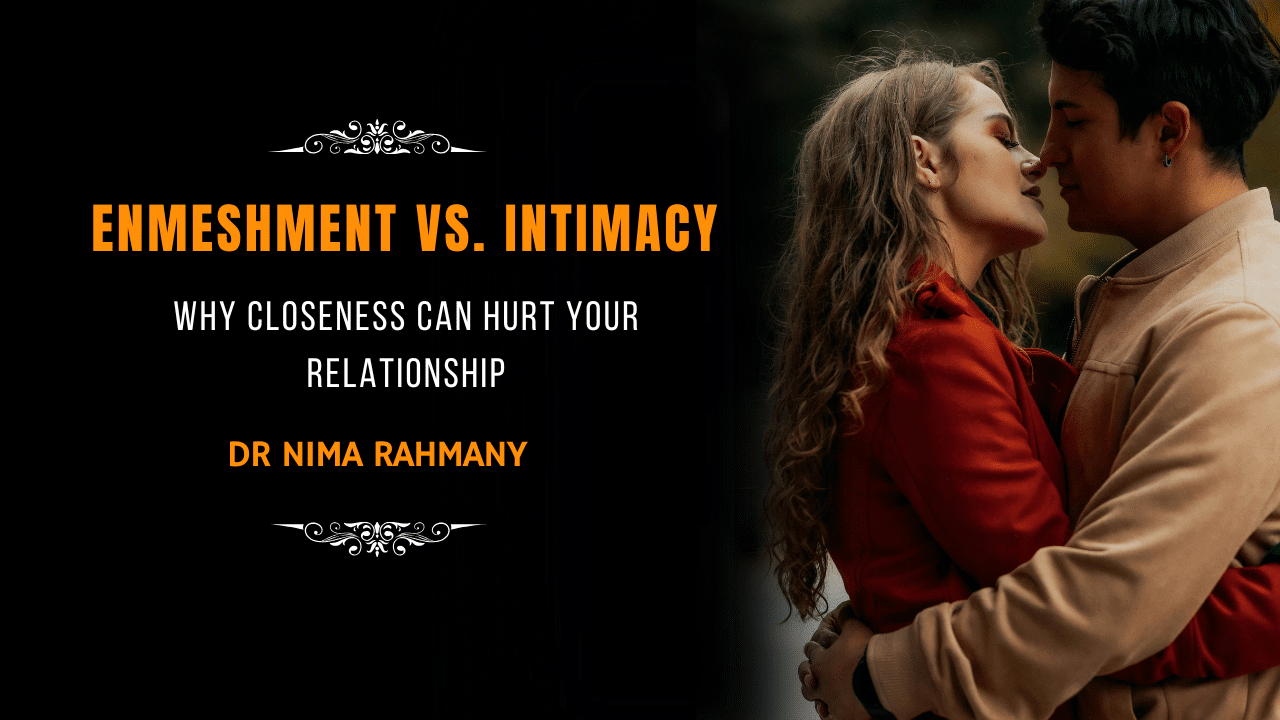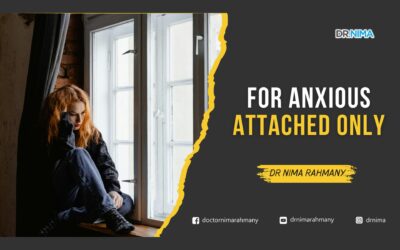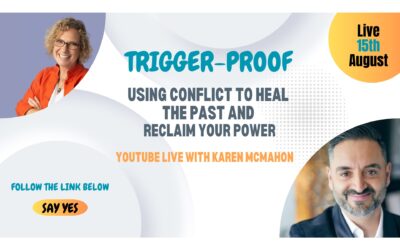and keeps both partners emotionally trapped.
And the worst part is that most people don’t even realize they’re in it.
What Is Enmeshment?
Enmeshment happens when there are no clear emotional boundaries
for their partners emotions, needs, and sense of self.
Sound like a clusterf*uck in the making?
This pattern often starts in childhood.
If you grew up in a home where:
- You had to manage a parent’s emotions instead of expressing your own.
- Your needs were ignored or dismissed, so you learned to prioritize others.
- Love was conditional on how well you behaved, pleased, or performed.
- There was little room for independence—
you were too close to a parent in a way that didn’t feel right...
Then chances are, you learned that love meant over-functioning
for others while under-functioning for yourself.
And this pattern carries into your relationships as an adult.
How Enmeshment Kills Intimacy
At first, enmeshment feels like connection.
that you just anticipate what they need.
But here’s what’s interesting:
It’s about two whole people choosing each other again and again.
And when you’re enmeshed, this kind of intimacy isn’t possible.
Instead, it creates:
- Emotional Exhaustion: If your partner’s happiness is your responsibility, \
you’ll always feel like you’re falling short.
You’ll bend over backward to “keep the peace,”
but deep down, it never feels enough. - Resentment: Because enmeshment means you’re constantly attuned
to the other person’s needs at the expense of your own,
you start to resent them for it—
even though you never expressed what you really needed in the first place. - A Cycle of Guilt and Obligation: If you say “no” to your partner,
you feel guilty. If you take time for yourself, they feel abandoned.
It’s a dance of emotional fusion,
where neither person can fully breathe in the relationship. - Fear of Independence: Because your identity is so tied to the relationship,
doing things separately feels like a threat.
Growth is stunted.
One person’s success or change feels like abandonment to the other.
And in the end— the very thing you were trying to create—deep connection—
Breaking free from enmeshment isn’t about pulling away from your partner.
while allowing them to do the same.
That means:
Learning to self-soothe instead of relying on your partner to fix your emotions.
Taking responsibility for your own needs,
Letting go of the guilt around having your own desires, goals, and space.
not losing yourself in the relationship.
Because the truth is, intimacy is not about needing someone to complete you.
That’s Hollywood fairy-tale bulls*it.
It’s about two whole, regulated, sovereign individuals coming together,
not to fill a void, but to expand what’s already whole.
Imagine what it feels like to love without fear.
To know, deep in your bones, that you are enough—
without bending, shrinking, or shape-shifting to earn someone’s approval.
Imagine being able to stand in front of your partner,
without the constant need for reassurance.
Picture a love that is secure,
and closeness doesn’t mean suffocation.
Where love is not a game of who sacrifices more,
fully, unapologetically, and without fear.
This is what happens when you become trigger-proof.
You start responding.
You stop fawning, clinging, or withdrawing.
You start showing up as the most grounded,
magnetic, authentic version of yourself.
And when you do, something incredible happens:
The same love you spent years chasing suddenly starts flowing effortlessly toward you.
Not because you needed it to complete you—
But because wholeness is the most irresistible energy in the world.
and you’re ready to stop losing yourself in relationships…
I’m offering a free Blind Spot Intuitive Session ($497 value)
and creating secure, thriving relationships.
On this session, we’ll identify the exact unconscious patterns keeping you stuck
without losing your connection.
But here’s the catch: This is only for those who can follow instructions,
I’ll send you a link to my calendar.
Let’s break the cycle, together.




